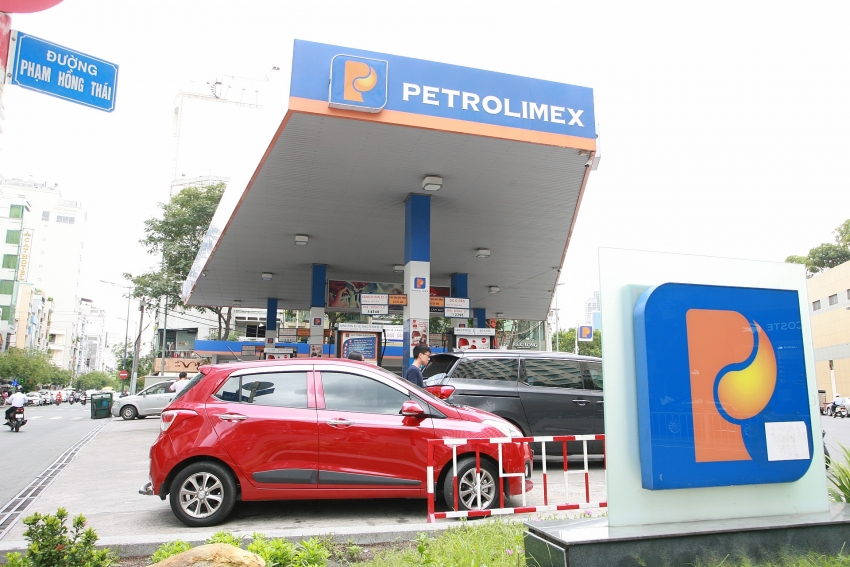Nosediving oil price deals a blow to state budget
By late last week, the average price of Brent crude in the London platform hit $30.40 per barrel for May contracts, down 30 per cent since late January, and the average price of WTI oil was $24.96 per barrel for April contracts, down 20 per cent in the same time.
Laying behind such a price drop is a shrink in demand for transport and travel due to the coronavirus pandemic, and not a reduction in crude oil supplies.
 |
| The falling oil price will affect the state budget as Vietnam is also an oil exporter |
In March, Standard Chartered forecast that the global oil price would hover at $29-35 per barrel, while the fresh projection of the International Energy Agency reached $38-43 per barrel, and Morgan Stanley also predicted the price to be around $50 per barrel this year.
Vietnam’s Ministry of Finance (MoF) earlier aimed to see a price of $60 per barrel for 2020.
Following such a price decline, two weeks ago, the cost of petrol E5RON92 and RON95 in Vietnam were reduced by over VND2,000 (8.7 US cents) per litre. Prices of other items such as diesel and kerosene have also lowered remarkably.
Many logistics firms such as locally-invested Azina Logistics and Singaporean-invested Indo Trans Logistics Corporation (ITL) said they are currently benefiting from a reduction in oil prices.
A source from ITL told VIR that each month the firm has to spend hundreds of thousands of US dollars on petrol to fuel its 200 tractor trailers and 110 trucks. Petrol is now accounting for 35 per cent of the firm’s transportation costs.
“The reduction in petrol price can help hundreds of other logistics firms in Vietnam reduce input costs. For example, it can help ITL save 4-5 per cent of transportation costs, especially in the context that a reduction in goods transport demand is driving logistics firms into increasing difficulties,” the source said.
In another case, Azina Logistics possesses 100 trucks and petrol is occupying 30 per cent of the company’s costs.
“A reduction in petrol price has been good news for firms like us,” a firm representative told VIR. “However, other costs are also on the rise. We hope that the petrol price will stay on a downtrend.”
Meanwhile, many production enterprises like Vietnam Stone Work – Top Fabrication also sees the oil price drop as a cost saver. Currently, oil cost accounts for a significant part of the firm’s total costs.
“It’s good news, especially in the context of rising costs in material inputs,” said a firm source. “All transport firms and those engaging in delivery services and producing materials from crude oil will benefit.”
According to the MoF, the falling oil price will help local production bounce back as fuel accounts for a significant part of local enterprises' costs, especially those involving transport and production which are now bogged down in difficulties caused by the current health crisis.
However, a drop in crude oil price in the global market has also been responsible for a fall in Vietnamese state budget revenue, because the country is also an exporter of crude oil.
In the first two months of 2020, Vietnam’s revenue from crude oil totalled $122.4 million, down from $378.26 million in the same period last year. Notably, the total was reaped not based on an average price of $50 per barrel in February, but a high price of $68 per barrel fixed previously.
State-run PetroVietnam is reported to be suffering from a loss of $2.35 billion from this drop.
The MoF said that a reduction in global prices will likely lead to a decrease in Vietnam’s crude exports, causing a dent of VND7-17 trillion ($304.35-739.13 million) to the state budget in 2020.
Under PetroVietnam’s plan, in 2020, `the group will exploit 10.62 million tonnes of crude oil, 9.74 billion cubic metres of natural gas, and produce 21.6 billion kWh of power and 1.56 million tonnes of nitrate. It will also manufacture 11.8 million tonnes of petrol. Total revenue this year will be VND640.9 trillion ($27.87 billion).
What the stars mean:
★ Poor ★ ★ Promising ★★★ Good ★★★★ Very good ★★★★★ Exceptional
Related Contents
Latest News
More News
- Vietnamese businesses diversify amid global trade shifts (February 03, 2026 | 17:18)
- Consumer finance sector posts sharp profit growth (February 03, 2026 | 13:05)
- Vietnam and US to launch sixth trade negotiation round (January 30, 2026 | 15:19)
- NAB Innovation Centre underscores Vietnam’s appeal for tech investment (January 30, 2026 | 11:16)
- Vietnam moves towards market-based fuel management with E10 rollout (January 30, 2026 | 11:10)
- Vietnam startup funding enters a period of capital reset (January 30, 2026 | 11:06)
- Vietnam strengthens public debt management with World Bank and IMF (January 30, 2026 | 11:00)
- PM inspects APEC 2027 project progress in An Giang province (January 29, 2026 | 09:00)
- Vietnam among the world’s top 15 trading nations (January 28, 2026 | 17:12)
- Vietnam accelerates preparations for arbitration centre linked to new financial hub (January 28, 2026 | 17:09)

 Tag:
Tag:
























 Mobile Version
Mobile Version